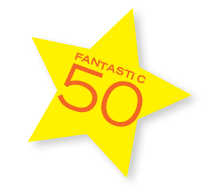RETAIL/WHOLESALE
Morooka USA
Ashland
Morooka USA President Kenneth Byrd says the development of new markets has contributed to his company’s recent growth.
One of its newest target markets for Morooka rubber-track carriers is the utility industry. “That led to some growth in the sales company in 2015, and it’s an area we continue to develop today,” he says.
Morooka USA is the top retail/wholesale company in the Fantastic 50, with a growth rate of 227.3 percent from 2011 to 2014. The company has been a category winner many times in recent years.
Morooka USA is one of three construction-related firms held by Ashland-based Richmond Group LLC. The other two companies are Dominion Equipment Parts and Morooka USA – Rents, which currently has a 155-vehicle rental fleet. Byrd oversees Morooka sales and rentals.
Morooka USA, which has 42 employees, sells more of the rubber-track carriers than “any other company in the world,” Byrd says, noting that it rents and sells vehicles in the same markets.
Morooka carriers can tackle most any type of terrain. The largest markets for the vehicles include oil and gas, utilities, environmental and construction industries. The Northeast represents one of Morooka USA’s biggest market regions in the U.S. “New York and Pennsylvania are big areas for sales because of the oil and gas business there,” Byrd says. “We are starting to see market penetration for the machines move west because there are a lot of utility companies west of here.”
 Morooka USA – Rents has expanded its rental fleet into Canada, opening a warehouse in Alberta. “Our machines are used in oil and gas exploration and development there,” Byrd says.
Morooka USA – Rents has expanded its rental fleet into Canada, opening a warehouse in Alberta. “Our machines are used in oil and gas exploration and development there,” Byrd says.
The recent drop in the price of crude oil has affected rentals in the U.S. and Canada. “When the price of oil went down, all of these oil development and drilling projects slowed down,” Byrd says. “As they slowed down our rental activity slowed down.”
Acknowledging that his industry is cyclical like the pipeline industry, Byrd remains an optimist about the future of oil and gas development. “The Keystone Pipeline was not approved by the federal government last year, and that was the poster child for the whole pipeline industry,” he says. “There were other projects going on, however, that are marching forward. I know prices are going back up, and the production cycle will go back in our favor. In the next one or two years, I see a definite resurgence of pipeline growth.”
Until that industry bounces back, the company is concentrating on other markets. “We still move dirt in construction jobs, and we work in environmental reclamation, such as river reclamation,” Byrd says. “Those guys love our machines. They don’t disturb the soil around them but to a minimum level.”
The company is putting more emphasis on the utility industry. The trucks now being used to install utility poles have trouble getting around in certain conditions. “When you get to a swampy or hilly area, you need an all-terrain vehicle,” Byrd says. “We can take the tool they use for creating holes and putting the poles in the holes and mount it on a Morooka. Think of it as any type of utility vehicle on rubber tracks.”
States such as Texas and Kansas are key hub areas for the utility industry. “That’s where some of the largest companies in the utility industry are,” Byrd says.
When the company started in 2005 with a distribution agreement with Japanese manufacturer Morooka Co. Ltd., its first territory was the eastern half of the U.S. Today it has distribution rights for the entire U.S., Canada, Mexico and Central and South America.
The company recruited its first dealer in Mexico in 2011 and now also has dealers in Colombia, Ecuador, Peru and Chile. “The South American market seems to be accepting or adapting to the Morooka carrier,” Byrd says. “Sales in South America and Central America are slowly increasing as infrastructure development is on the rise in many South and Central American countries. We also are on the cusp of our first Central American dealer outside of Mexico.”
Byrd is proud of the people that work for the company, some of whom have been with the firm for 18 years. “Being able to attract good people and have them grow with you and stay with you is an important thing,” he says. “The folks that work for Morooka USA are some of the best, and we couldn’t do it without them.”


 Also underway is the continued development of Midtown Marketplace, a phased $30 million retail development, and an $18 million private investment in the Victory area of the city with two new 7-Eleven stores and the proposed expansion of Autumn Care, a nursing and rehabilitation center.
Also underway is the continued development of Midtown Marketplace, a phased $30 million retail development, and an $18 million private investment in the Victory area of the city with two new 7-Eleven stores and the proposed expansion of Autumn Care, a nursing and rehabilitation center.